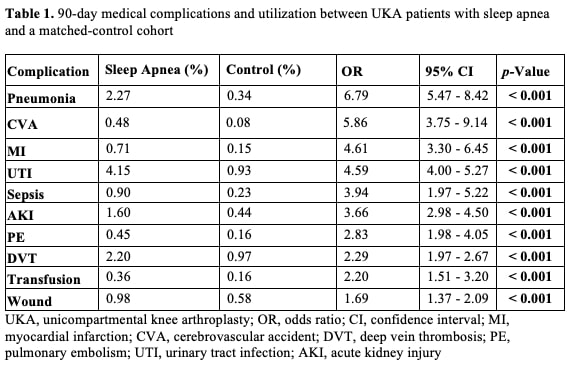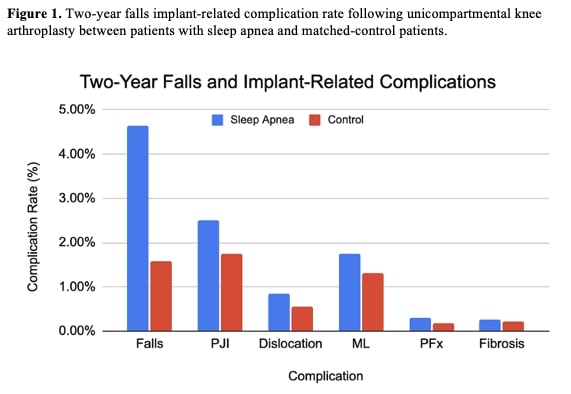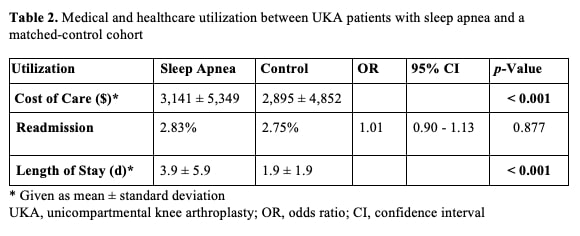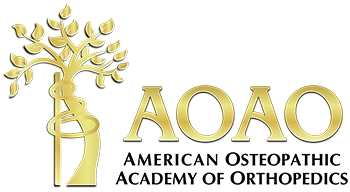1Mekkawy K, 2Delgado G, 1Rodriguez H, 3Marchand K, 4Gosthe R, 1Corces A, 5Roche M
1Larkin Community Hospital, North Haledon, NJ, United states; 2Lewis Katz School of Medicine at Temple University, Philadelphia, PA, United states; 3Ortho Rhode Island, Providence, RI, United states; 4Holy Cross Orthopedic Institute, Fort Lauderdale, FL, United states; 5Hospital for Special Surgery, West Palm Beach, FL, United states
Introduction
Sleep apnea (SA) has been shown to negatively affect cognition, immunity, and bone mineralization. The effects of SA on unicompartmental knee arthroplasty (UKA) outcomes are not well defined. The purpose of this study is to assess postoperative medical and implant-related complications, and healthcare utilization in patients with and without SA undergoing UKA.
Methods
A retrospective review of a private insurance claims database was conducted from 2010 to 2021. All cases of UKA and those with a prior diagnosis of SA were identified using their corresponding diagnosis and procedural codes. Patients undergoing UKA with a diagnosis of SA were matched to control patients 1:2 based on demographic and comorbidity profiles. Outcomes assessed were 90-day medical complications, 2-year implant complications, cost of care, length of stay, and 90-day readmission rates.
Results
A total of 16,080 SA patients were matched to 31,684 control patients. The SA group had significantly higher rates of all 90-day medical complications when compared to the control group (all P<0.01). SA patients also had significantly greater odds of falls (OR, 3.04; CI, 2.71-3.41, P<0.001). Likewise, the SA group had significantly greater odds of prosthetic joint infection, dislocation, mechanical loosening, and periprosthetic fracture than the control group (all P<0.01). There were no significant differences in the odds of arthrofibrosis (p=0.186). Additionally, mean cost ($3,141 vs. $2,895, P<0.001) and mean length of stay (3.9 vs. 1.9 days, P<0.001) were significantly greater in the SA group.
Conclusions
Sleep apnea in patients undergoing UKA is associated with a significant risk of medical and implant-related complications, especially pneumonia, thromboembolic complications, and falls. It is prudent for orthopedic surgeons to identify those with SA, with possible early intervention prior to surgery to improve outcomes.






